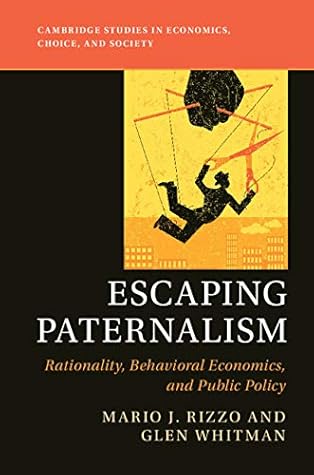Standard economics is particularly ill-equipped to deal with the process of automatic counteractive self-control. Most choice problems are conceived as the agent maximizing an objective function. In the more recent extended versions, designed to accommodate behavioral insights, an extra constraint is added: self-control. This is costly impulse control – the deliberate application of cognitive effort to resist temptations. But the modeled agent’s perception of the problem, and thus the framework of decision, is itself static.58 The agent takes the parameters of the problem, including the costs
...more
Welcome back. Just a moment while we sign you in to your Goodreads account.


